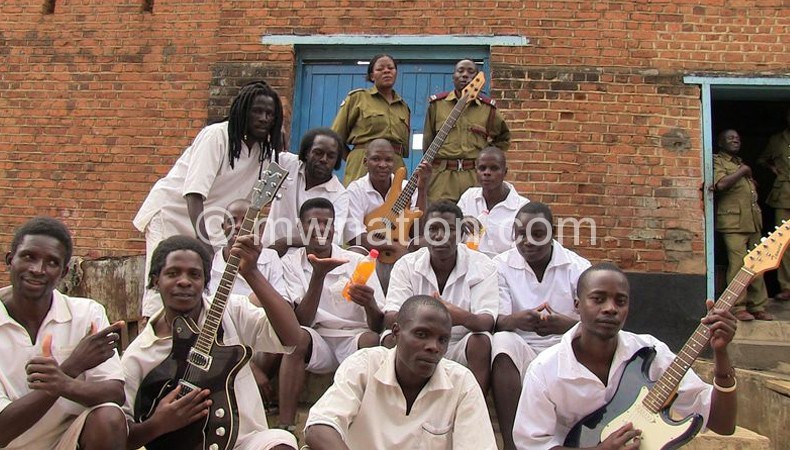Music from the cells
For some, a prison is a place of condemnation where people are tormented for the offences for which they were convicted. But ideally, it is not supposed to be thus. It is a place for reformation—rehabilitation and reflection, a pivot for a possible turn-around.
However, there are no ideals at Zomba Central Prison. Only reality is there—the harsh kind of reality. It is here where a large percentage of Malawi’s political prisoners, accused of murder and women accused of witchcraft are detained, sometimes indefinitely.

But between the brick walls, the prisoners escape their misery by playing in a band—the soaring sounds of their voices raising their concerns—channelling the emotions of how they miss their children and their experience. But without someone to take their music out, their voices are like a scream in the middle of the desert, where no one hears them.
In the summer of 2013, Grammy Award-winning UK producer Ian Brennan, who has also produced local band Malawi Mouse Boys and his partner, documentary filmmaker Marilena Delli, were granted rare access to the Zomba Prison. He was allowed make musical recordings of the prisoners in return for teaching classes on conflict resolution to both inmates and prison warders.
The Zomba Prison Project was born with the hope to use the inmates’ music to raise awareness and make money to help those incarcerated with legal representation and logistical support.
As part of the project, the inmates have released I Have No Everything Here, which is a melancholic themed album.
“Some are being held on negligible charges such as witchcraft or homosexuality. So we thought it would be a compelling thing to do, just for us as human beings, to find a way to give people a platform for self-expression,” said Brennan.
“For me,” Brennan said, “there’s music everywhere, so there was bound to be as much, if not more, in a prison, where people are restricted in ways they can express themselves.”
On the men’s side of the prison, he found an organised band, with guitars, drums, keyboards and basses, as well as a generator to provide electricity. There was also a hierarchy, and the band’s leaders knew what they wanted to record and how.
All told, Brennan recorded about six hours of music, sung in local languages, mostly Chichewa, about an hour of which 19 original songs and one traditional choral piece are included on the CD which started selling on Amazon this week.
Delli also produced a short documentary on the visit, which Brennan said would probably be posted on the record label’s web page.
Also, pair established the Zomba Prison Project, where they hope to use the music the inmates themselves make to raise both awareness and hard cash in which to help those incarcerated with both legal representation and logistical support. So far they have seen three inmates released.
The men’s group is actually led by an individual who is serving a life-sentence due to having committed murder during a robbery plot where he and his gang attempted to steal equipment from another band.
Meanwhile, many of the women are held for witchcraft, with their only crime having been being in the wrong place at the wrong time.
Through the Zomba Prison project, three of the women involved have gained release from their sentences. And three other cases are now actively under review due to the funds that have been raised. The hope is that these efforts will be ongoing and more prisoners will be advocated for as a result of awareness and support brought about through the I Have No Everything Here album.
According to a review on Amazon, I Have No Everything Here, is, as one would expect, largely incredibly sad.
“The subject matter of the songs, field recordings spanning in genre from groovy pop to gospel to a single voice rising in sorrow as birds are heard in the background, is hardship. The prisoners sing about death, Aids and, often, missing their children. The music is also inventive, uniformly compelling and, in a way that unsettles the listener, entirely lovely,” the review reads.
Over five dozen people were recorded for the Zomba Prison project sessions, totaling more than six hours of music.





